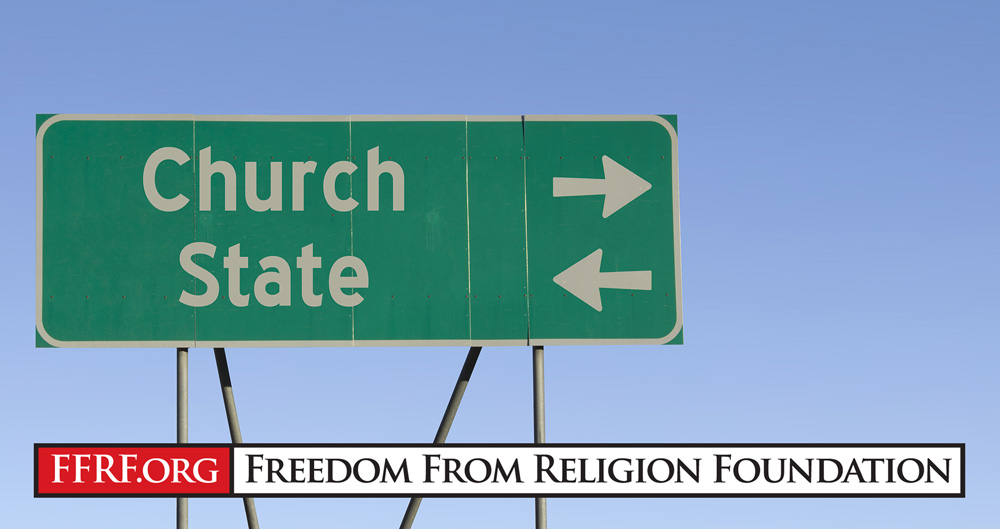
In an unsurprising 8-0 decision today, the U.S. Supreme Court has ruled that individuals can sue federal officials for damages under the federal Religious Freedom Restoration Act (RFRA). The Freedom From Religion Foundation is calling the decision a missed opportunity to address a fundamental issue.
“RFRA is unconstitutional,” says FFRF Co-President Annie Laurie Gaylor. “The longer that the Supreme Court treats this law as a de facto constitutional amendment, the longer it is continuing to damage the First Amendment.”
The case, Tanzin v. Tanvir, was brought before the court by three men seeking damages under RFRA. “The U.S. Supreme Court accepted a no-fly list case to decide whether federal officials can be sued for money damages in their individual capacities for violations of the Religious Freedom Restoration Act,” the ABA Journal reported last year.
FFRF had filed an amicus brief in the case, which argued that the disagreement over the interpretation of RFRA missed a fundamental problem: its constitutionality. FFRF pointed out that RFRA violated the separation of powers and Article V, exceeded Congress’ enumerated powers, and violated the Establishment Clause.
The Supreme Court ruled on a narrow issue in determining what type of court-ordered relief a plaintiff can receive under RFRA. In a short opinion for the court, Justice Clarence Thomas said, “The question here is whether ‘appropriate relief’ includes claims for money damages against government officials in their individual capacities. We hold that it does.”
The court said that in adopting RFRA, Congress sought to counter the effect of the Supreme Court’s decision in 1990 in the case Employment Division v. Smith. Congress responded by adopting a more favorable standard for religious claimants than was provided for under the Free Exercise clause of the First Amendment. Because Congress sought to revert to a pre-Smith standard, the court looked at what types of relief were available prior to Smith.
FFRF’s amicus brief highlighted some of the consequences in allowing for damages suits under RFRA. Making individual employees liable would require public servants to evaluate whether the laws they are enforcing require a religious exemption, which is a tricky question for federal courts to answer, let alone for an individual with no legal training.
Justice Thomas noted that Congress would be free to amend the law to shield government employees from personal liability. FFRF is calling for Congress to go a step further, and to repeal RFRA in its entirety.
The Freedom From Religion Foundation, based in Madison, Wis., a 501(c)(3) nonprofit educational charity, is the nation’s largest association of freethinkers (atheists, agnostics), and has been working since 1978 to keep religion and government separate.
